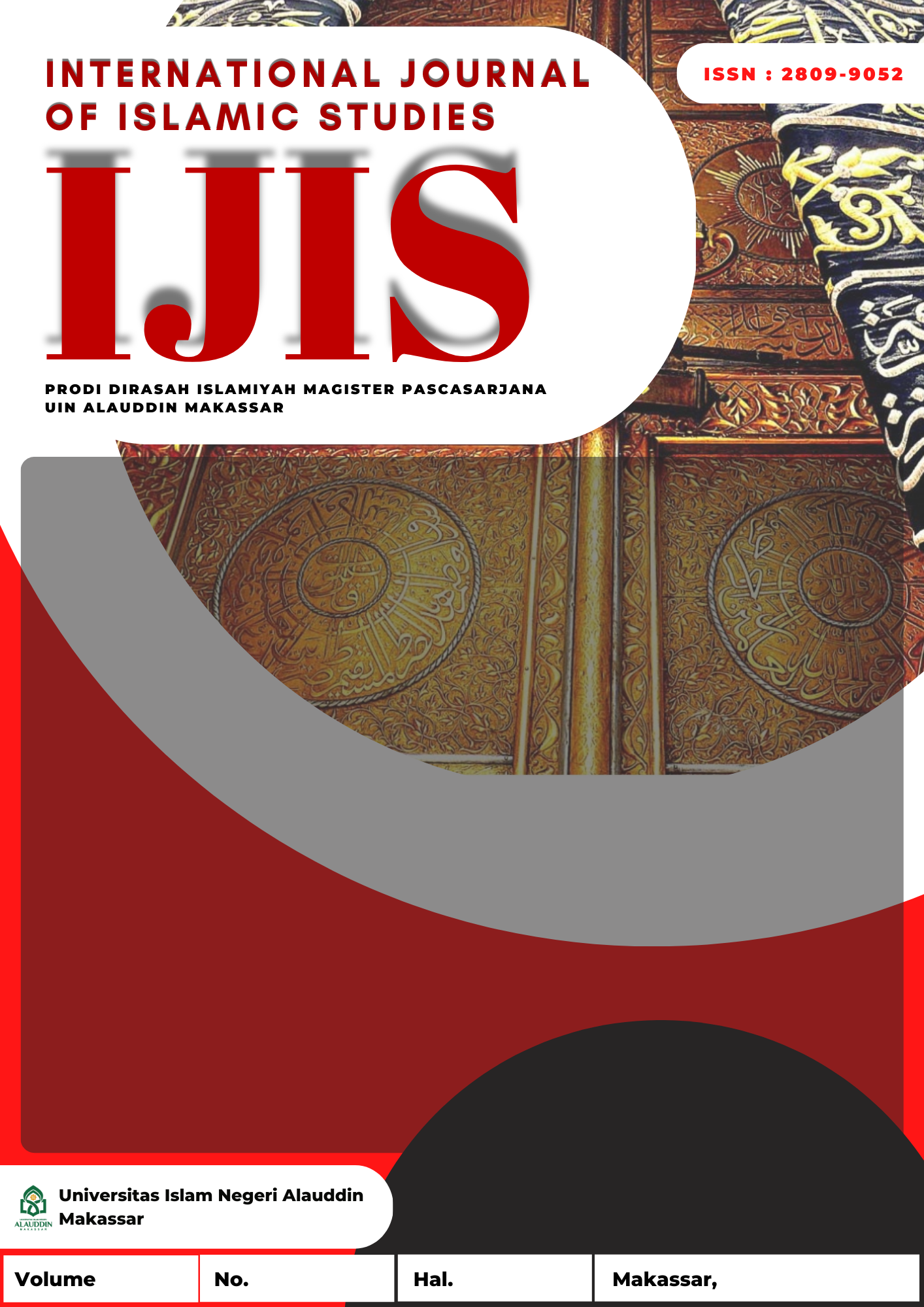IMPLEMENTATION OF THE AL-TAISĪR CONCEPT IN JAMAK PRAYER FOR MEDICAL PERSONNEL PERFORMING SURGICAL OPERATIONS
Abstrak
Islamic law is based on strong and flexible principles that are suitable for every country, people, time, and era. There are three principles in Islamic law. First, it is not burdensome and removes difficulties. Second, maintaining the benefit of all human beings. The third is the comprehensive realization of justice. There are many forms of eliminating hardship and difficulty. Among them are in the aspect of worship, in the realm of muamalah and uqūbah (sanctions). In the aspect of worship, for example, the permissibility of qasar prayer, tayamum and iftar for travelers and sick people. A situation that is also related to this is the condition of medical personnel when performing surgical operations that require a short time to carry out. It is not uncommon for this to coincide with the time of prayer until it is close to the time limit. Sometimes, the surgery goes beyond the set prayer time, even entering the next prayer time. This research was conducted using a theological-normative approach or shar'ī approach presented qualitatively. Primary data sources come from verses of the Qur'an, the Prophet's hadith. Secondary data is obtained from various sources, namely literature that studies the concept of al-taisīr, scientific journal articles, print and online media. The data are analyzed by deductive method.
Referensi
‘Abd al-Salām, ‘Izz al-Dīn Ibn ‘Abd al-‘Azīz Ibn. Qawā'id al-Aḥkām fī Maṣāliḥ al-Anām. Al-Qāhirah: Maktabah al-Kulliyyāt al-Azhariyyah, 1991.
‘Azzām, ‘Abd al-‘Azīz Muḥammad. Maẓāhir al-Taisīr fī al-Tasyrī‘ al-Islāmī. Miṣr: Dār al-Ḥadīth, 2005.
‘Azzām, ‘Abd al-‘Azīz Muḥammad. Al-Qawā‘id al-Fiqhiyyah. Al-Qāhirah: Dāral-Ḥadīth, 2005.
Al-Baiḍāwī. Minhāj al-Wuṣūl ilā ‘Ilm al-Uṣūl, 1st Juz. Bairūt: 'Ilm al-Kutub, t.th.
al-Bayānūnī, Muḥammad Abū al-Fataḥ. Al-Ḥukm al-Taklīfī fī al-Sharī'ah al-Islāmiyyah. Miṣr: Dār al-Ḥadīth, 1987.
al-Dausarī, Muslim Ibn Muḥammad Ibn Mājid. Al-Mumti‘ fī al-Qawā'id al-Fiqhiyyah. Cet. I; Al-Riyāḍ: Dār Zidnī, 2007.
al-Ḥafnāwī, Manṣūr Muḥammad Manṣūr. Al-Taisīr fī al-Tasyrī‘ al-Islāmī. Miṣr: Maṭba'ah al-Amānah, 1991.
Ibn Manẓūr, Abū al-Faḍl Jamāl al-Dīn Muḥammad Ibn Mukram. Lisān al-‘Arab.
Al-Qāhirah: Dār al-Ma'ārif, t.th.
Ibn Rushd. Bidayah al-Mujtahid wa Nihayah al-Muqtasid. t.t.: Dār al-Kutub al-Islamiyyah, 2012.
Iswandi, Andi. "Application of the Concept of Taysīr in the Islamic Economic System". Ahkam 24, no. 2 (July 2014).
Jum'ah, Adnān Muḥammad. Raf' al-Ḥaraj fī al-Sharī'ah al-Islāmiyyah. Dimashq: Dār al-Fikr, 1979.
Khallāf, 'Abd al-Wahhāb. 'Ilm Uṣūl al-Fiqh. Al-Qāhirah: Dār al-Ḥadīth, 2002.
“Getting to Know Heart Bypass Surgery, Its Purpose and Risks”, Alodokter Official Website.https://www.alodokter.com/memperpanjang-usia-berkat-operasi-bypas
s-jantung (June 29, 2022).
“Caesarean Section, Here's What You Should Know”, Alodokter Official Website. https://www.alodokter.com/operasi-caesar-ini-yang-harus-anda-ketahui (July
, 2022).
Permatasari, Vinda Astri. "Preparation of Surgical Procedures and Tools". Clinical Practice Assignment. Yogyakarta: Health Polytechnic of Yogyakarta.
Academic Hospital of Universitas Gadjah Mada, The First Operation of Brain Tumor Removal through Transnasal Endoscopy Method at RSA UGM, RSA
UGM official website. https://rsa.ugm.ac.id/2022/04/operasi-pertama-pengangkatan-tumor-otak-melalui-metode-transnasal-endoscopy-di-rsa-ugm/ (June 29, 2022).
Syatar, Abdul. "The Concept of Masyaqqah in the Perspective of Islamic Law (Implementation of Contemporary Jurisprudence Issues)", Thesis (Makassar:
Dirasah Islamiyah Islamic Law Concentration Study Program, UIN Alauddin Makassar, 2012).
al-Sa'dī, 'Abd al-Raḥmān Ibn Nāṣir. Taisīr al-Karīm al-Raḥmān fī Tafsīr Kalām al-Mannān. Cet. II; Al-Riyāḍ: Dār al-Salām, 1422 H/2001 M.
al-Syanqiṭī, Muḥammad Ibn Muḥammad al-Mukhtār. Aḥkām al-Jaraḥiyyah al-Ṭibbiyyah. Juddah: Maktbah al-Ṣaḥābah, 1994.
al-Syāṭibī, Ibrāhīm Ibn Mūsā Ibn Muḥammad al-Lukhamī al-Garnāṭī Abū Isḥāq. Al-Muwāfaqāt fī Uṣūl al-Sharī'ah. Bairūt: Dār al-Kutub al-'Ilmiyah, t.th.
al-‘Uṡaimīn, Muḥammad Ibn Ṣāliḥ. Risālah fī al-Dimā‘ al-Ṭabī'iyyah li al-Nisā’. transl. Muhammad Yusuf Harun, The Blood Habits of Women. Jakarta: Darul
Haq, t.th.
al-Zuḥailī, Wahbah. Uṣūl al-Fiqh al-Islāmī, 1st Edition. I; Dimasyq-Sūriyā: Dāral-Fikr, 1406 H/1987 M
Authors who publish with this journal agree to the following terms:
1) Authors retain copyright and grant the journal right of first publication with the work simultaneously licensed under a Creative Commons Attribution License that allows others to share the work with an acknowledgement of the work's authorship and initial publication in this journal.
2) Authors are able to enter into separate, additional contractual arrangements for the non-exclusive distribution of the journal's published version of the work (e.g., post it to an institutional repository or publish it in a book), with an acknowledgement of its initial publication in this journal.
3)Authors are permitted and encouraged to post their work online (e.g., in institutional repositories or on their website) prior to and during the submission process, as it can lead to productive exchanges, as well as earlier and greater citation of published work (See The Effect of Open Access).







